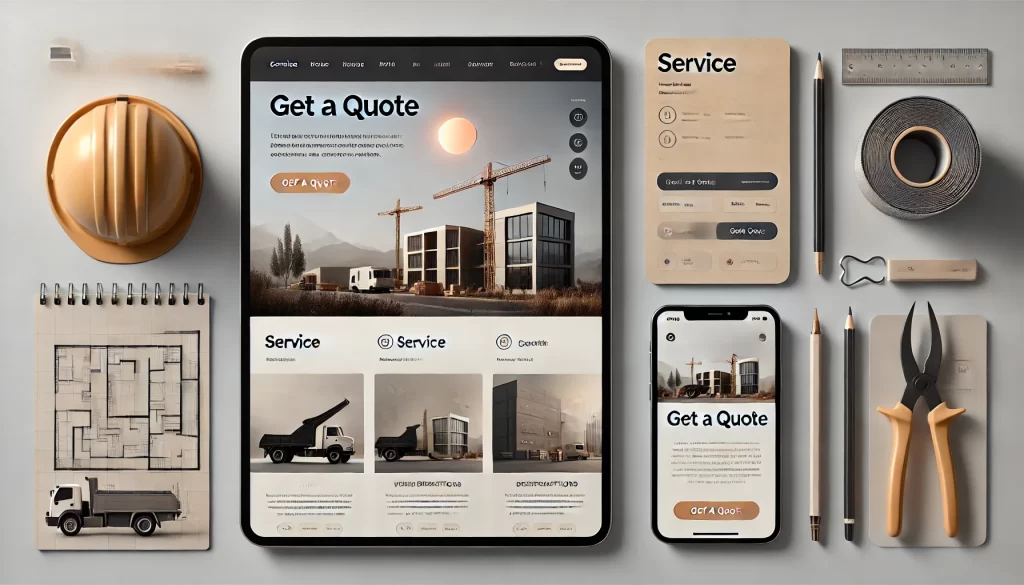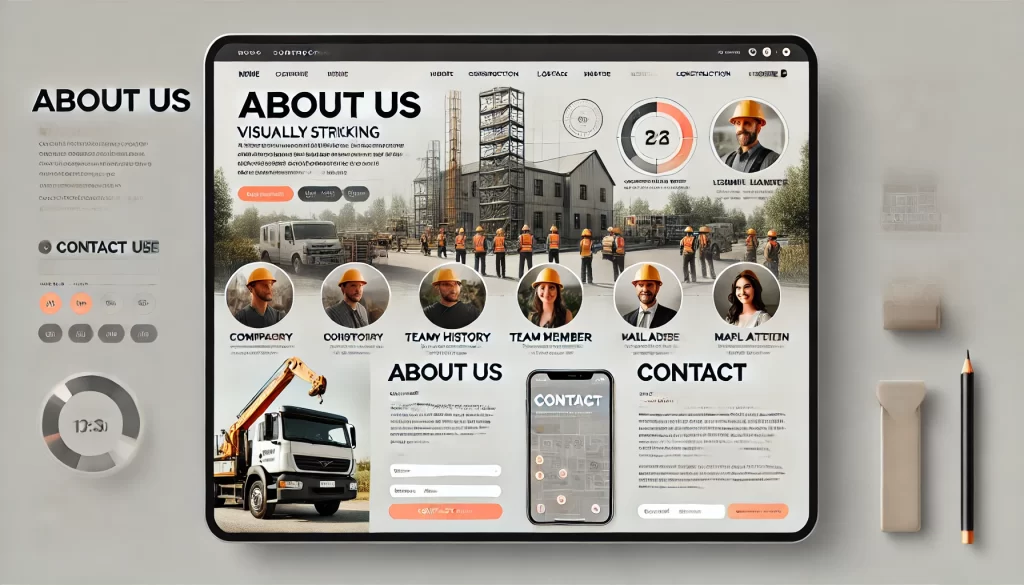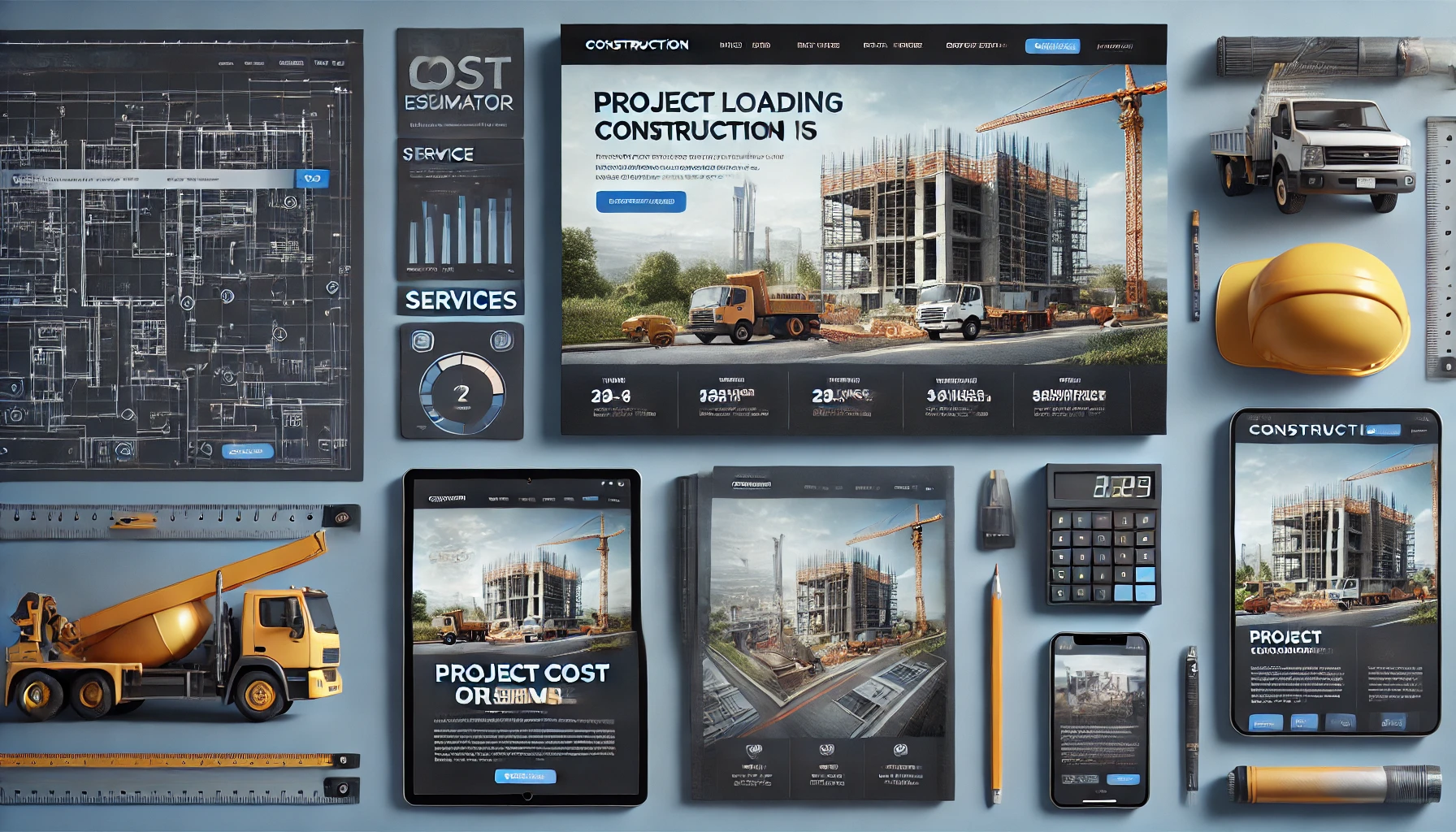A professional construction website is no longer a luxury; it’s a necessity. In today’s digital landscape, potential clients often search online for services. A well-crafted website helps establish credibility, showcase past projects, and attract new clients. Your website acts as a digital storefront. It’s where visitors learn about your expertise, view your portfolio, and decide whether to contact you. Without one, you risk losing out on significant business opportunities.
For construction companies, having an online presence helps build trust. Many clients want to see proof of expertise before making a decision. Your website provides this proof, featuring testimonials, certifications, and an overview of services offered.

Related Posts
- Advanced Features for Construction Websites
- Types of Construction Websites
- Conclusion: Importance of Construction Website
Key Elements of a Great Construction Website
To succeed online, a construction website needs certain key features:
Clear and User-Friendly Navigation
Visitors should quickly find what they’re looking for. A straightforward menu with options like “Home,” “Services,” “Portfolio,” “About Us,” and “Contact” ensures a seamless user experience.
Mobile-First Design
Most people access websites via mobile devices. A responsive design ensures your website adapts to all screen sizes, offering a consistent experience.
Portfolio Showcase
Clients want to see examples of your work. Use high-quality images and project descriptions to highlight your best projects.
Testimonials and Reviews
Positive reviews build trust. Display client testimonials prominently on your homepage or a dedicated “Testimonials” page.
Contact Information
Make it easy for potential clients to reach you. Include phone numbers, email addresses, and a contact form.
SEO Optimization
Optimize your website to appear in search engine results. Use keywords like “construction website” and “construction business website” naturally in your content.
Blog Section
Share tips, industry news, and company updates. This not only engages visitors but also helps with search engine rankings.
Related Posts
- Marketing Construction Websites
- Design Best Practices for Construction Websites
- Case Studies and Examples of Construction Websites

Trends in Construction Web Design
Web design trends change constantly. Here are some of the latest trends that can enhance your construction website:
Minimalist Layouts
A clean design with plenty of white space ensures clarity. Avoid cluttered pages and focus on showcasing key information.
Visual Storytelling
Use images and videos to tell your company’s story. A video walkthrough of a completed project can be more engaging than text alone.
Interactive Features
Incorporate interactive elements like live chat, project calculators, or sliders to keep visitors engaged.
Sustainable Design Themes
Highlight your commitment to sustainability by using green design themes and showcasing eco-friendly projects.
Fast Loading Speeds
Visitors won’t wait for slow websites. Optimize images and code to ensure your site loads quickly on all devices.
Why Construction Websites Are Crucial
A well-designed construction website ensures your business stays competitive. It allows you to:
- Reach a wider audience.
- Build trust with potential clients.
- Showcase your work professionally.
- Attract high-quality leads.
Without a strong online presence, competitors with better websites are likely to win more business.
FAQs
What are the benefits of a construction business website?
A website builds credibility, showcases projects, and attracts new clients. It also provides a platform for SEO efforts, helping your business appear in search results.
How can I make my construction website mobile-friendly?
Use a responsive design that adjusts to different screen sizes. Test your website on multiple devices to ensure a consistent experience.
What content should I include on my construction website?
Include an “About Us” section, services offered, a project portfolio, client testimonials, and contact information. A blog section can also engage visitors and improve SEO.
Why is SEO important for construction websites?
SEO ensures your website ranks well on search engines, increasing visibility. This drives organic traffic and helps attract potential clients.
How often should I update my construction website?
Update it regularly with new projects, blog posts, or service offerings. Fresh content improves SEO and keeps visitors engaged.
Can a construction website help small businesses?
Absolutely. A professional website levels the playing field, allowing small businesses to compete with larger companies by showcasing their unique strengths.
Key Takeaways
A professional construction website is an essential tool for success. It establishes credibility, expands reach, and attracts more clients. Incorporating key elements and staying up to date with design trends ensures your website stands out.
- A construction website boosts credibility and generates leads.
- Essential features include user-friendly navigation, mobile design, and project showcases.
- Following trends like minimalist design and visual storytelling enhances the user experience.
- Regular updates and SEO optimization are critical for long-term success.
